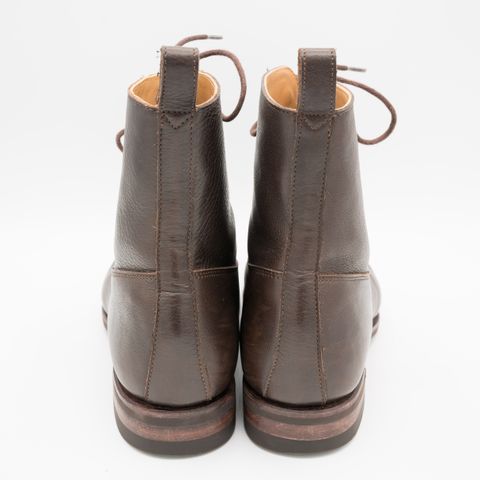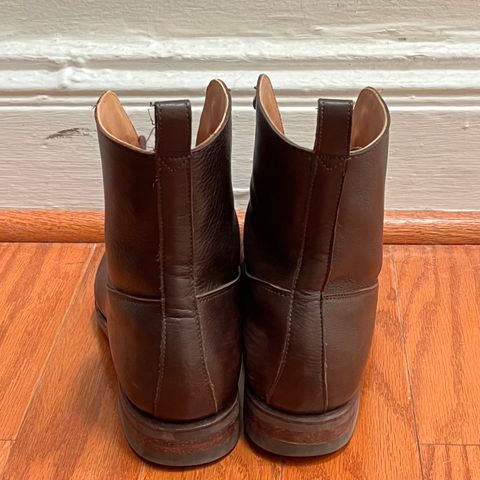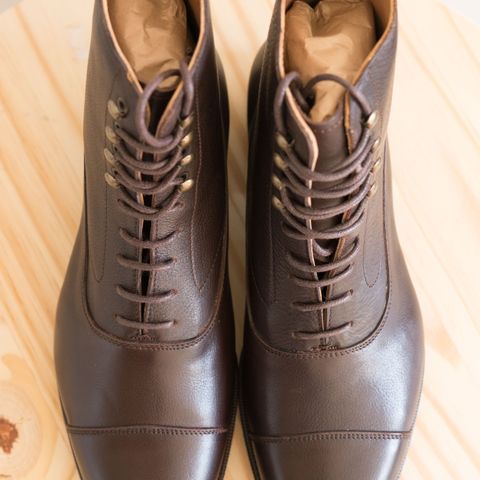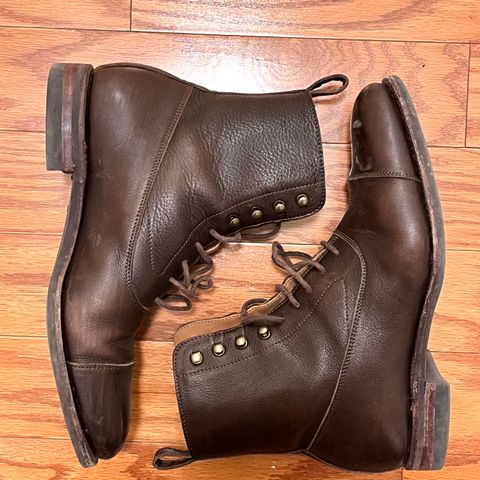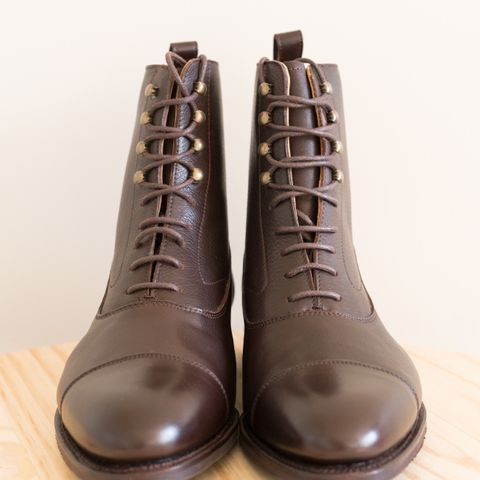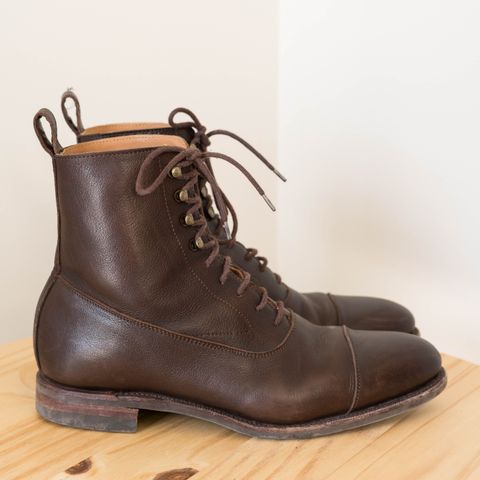About
Annonay Softcalf is a high-quality boxcalf leather produced by Tannerie D'Annonay, a French tannery founded in 1838 in the Ardèche region. The leather is characterized by a high degree of softness and suppleness combined with durability, making it suitable for high-end heritage footwear applications. Softcalf represents a specific variant within the tannery's boxcalf range, distinguished by its particularly soft temper while maintaining the structural properties required for quality shoemaking.
About
Annonay Softcalf is a high-quality boxcalf leather produced by Tannerie D'Annonay, a French tannery founded in 1838 in the Ardèche region. The leather is characterized by a high degree of softness and suppleness combined with durability, making it suitable for high-end heritage footwear applications. Softcalf represents a specific variant within the tannery's boxcalf range, distinguished by its particularly soft temper while maintaining the structural properties required for quality shoemaking.
The leather is produced using Tannerie D'Annonay's traditional boxcalf tannage methods, which the company has refined since establishing itself as a worldwide benchmark in this specialty. Shoemakers including Meermin and Viberg incorporate Softcalf into their heritage footwear collections, taking advantage of the leather's combination of flexibility and durability.
History and heritage
Tannerie D'Annonay has produced calf leather in the French town of Annonay since 1838, continuing a leather-making tradition in the region that dates to the 12th century. The tannery became a worldwide benchmark in boxcalf tannage, developing processes that provide durability, wear-resistance, transparency and beauty to the leather. The company's boxcalf methods have been refined over generations, with traditional techniques combined with modern approaches to ensure consistent quality.
The tannery is owned by Hermès as part of the HCP group, a collection of tanneries specializing in exotic and calf leathers. This ownership provides resources for maintaining traditional methods while investing in technical improvements. The Annonay facility operates with approximately 80 employees and produces about two million square feet of leather annually, serving luxury footwear and leather goods brands worldwide.
Tanning process
Softcalf undergoes the boxcalf tannage process that Tannerie D'Annonay has specialized in since its founding. The process uses chrome tanning as the base method, followed by aniline dyeing applied in drums where the color penetrates deeper into the hide. This creates a semi-transparent surface where the natural grain remains visible, contributing to depth of color and the ability to develop patina over time.
The tanning process involves multiple stages. Box calf production starts with young cattle hides, typically from animals less than 10 months old, to ensure the leather's fine grain and inherent softness. The hides undergo vegetable tanning, which strengthens the hide's structure while maintaining flexibility. Aniline dyes are then applied, penetrating the leather while allowing the natural grain and unique markings to remain visible. The final finishing stage involves glazing and polishing to create the signature glossy surface of boxcalf leather, which contributes to both durability and water resistance.
Characteristics
Softcalf exhibits several defining properties that distinguish it within Tannerie D'Annonay's leather range. The leather demonstrates high softness and suppleness to the touch while maintaining the structural integrity required for footwear construction. The material features a small natural grain with a matte finish, differentiating it from higher-gloss boxcalf variants. Despite its soft temper, Softcalf provides durability and excellent resistance to wear.
The leather's full-grain nature ensures long-term durability while allowing natural grain patterns to remain visible through the finish. The semi-transparent aniline dyeing creates depth of color that evolves with wear. Softcalf's high breathability makes it particularly suitable for unlined footwear applications, where the leather's flexibility can be fully utilized. The combination of softness and structural strength allows the material to function in both formal dress shoes and more casual heritage boot constructions.
Applications in heritage footwear
Shoemakers incorporate Softcalf into various heritage footwear styles, leveraging its balance of flexibility and durability. Meermin uses Soft French calf from Tannerie D'Annonay in their Flex Goodyear Welted construction, where the leather's suppleness complements the flexible nature of the construction method. The leather appears in both lined and unlined applications across Meermin's collection, including loafers, Chelsea boots, and dress shoes.
Viberg's French Calf Collection represents collaboration between the Canadian bootmaker and Tannerie D'Annonay, combining over 200 years of combined expertise in footwear and leather production. The collection showcases the leather's ability to maintain structure in work boot-inspired designs while providing the refined appearance expected in heritage footwear. British bootmaker Bradshaw and Lloyd selected Tannerie D'Annonay to supply full grain calf leathers for their boots manufactured at the Sanders factory in Rushden, Northamptonshire.
The leather's versatility allows it to function across different construction methods while maintaining consistent performance characteristics. In Goodyear welted construction, Softcalf provides the necessary structure for the welt attachment while offering enough flexibility for comfortable wear. The leather's breathability becomes particularly valuable in unlined applications, where direct contact with the foot requires materials that allow air circulation while maintaining shape over time.
References
"Annonay Tannery – Excellence in high-end calf leather". Groupe HCP. Retrieved October 21, 2025.
Jesper Ingevaldsson. "Guide - Shoe leather tanneries". Shoegazing. August 27, 2021.
"Tannerie d'Annonay". Official website. Retrieved October 21, 2025.
Manuel Dreesmann. "Box Calf Leather: An Unraveling of its Timeless Appeal". Manuel Dreesmann. Retrieved October 21, 2025.
